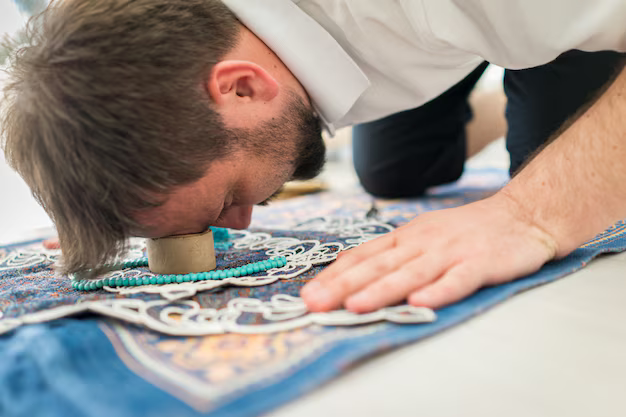
Fiqah e Jafria Namaz, Ahkaam, and Wajibaats Course
Momineen Quran Courses
Fiqah e Jafria Namaz, Ahkaam, and Wajibaats Course
This course is specifically designed to teach Shia Muslims the proper way to perform Namaz (Salat), as well as the Ahkaam (jurisprudence) and Wajibaats (obligatory acts) required to ensure that one’s worship is valid and accepted in the eyes of Allah (SWT).
It is based on the teachings of Fiqah e Jafria, the Shia school of thought, and includes specific practices that differ from other schools of Islamic jurisprudence. This course also falls under our broader Islamic Studies program, which aims to provide deep insights into Islamic laws and rituals.
1. Fiqah e Jafria Namaz (Salat)
Understanding Namaz (Salat) in Fiqah e Jafria:
- Understanding Salat from the Shia perspective is a foundational element in comprehensive Islamic Studies.
- Namaz is the most important pillar of worship in Islam, and performing it correctly is of paramount importance in Fiqah e Jafria.
- In this course, we will cover all the necessary aspects of performing Namaz according to Shia teachings, including the specific actions, recitations, and important details that distinguish Shia Namaz from other schools.

Key Topics Covered:2. Ahkaam (Islamic Jurisprudence / Laws) in Fiqah e Jafria
-
These topics are essential components of any structured Islamic Studies course.
- Intention (Niyyah): Before starting Namaz, you must have a clear intention of offering the prayer for the sake of Allah. In Shia Fiqah, this is important as it ensures the sincerity of worship.
- Opening Takbir (Takbir al-Ihram): The correct way to begin the prayer by saying “Allahu Akbar.”
- Qiyam (Standing): How to stand in Namaz, with the hands placed properly (right over the left) and the position of the feet, following the Shia method.
- Ruku (Bowing): The proper way to bow during Namaz, ensuring the back is straight and the head is aligned with the back. Shia Muslims recite specific praises for Allah during this position.
- Sujud (Prostration): Shia Muslims prostrate on a Turbah (a clay tablet), which is used to ensure purity during Sujud. The correct method of performing Sujud is emphasized in this course, along with specific supplications.
- Tashahhud (Testification): After completing two Rakats (units of prayer), the student will learn the correct way to sit for Tashahhud, and recite the testimonies of faith.
- Tasleem (Salutation): The final step in Namaz, where one turns the head to the right and then to the left, saying “As-Salamu Alaikum wa Rahmatullah.”
Shia-Specific Practices:
- Use of Turbah (Clay Tablet): Shia Muslims place their forehead on a Turbah during prostration as a sign of respect and humility. This is a unique feature of Namaz in Fiqah e Jafria.
- Recitation of Surah Al-Fatiha and Surah in Each Rakat: Shia Muslims recite Surah Al-Fatiha followed by another Surah in each Rakat. This course teaches the best Surahs to recite and their spiritual benefits.
2. Ahkaam (Islamic Jurisprudence / Laws) in Fiqah e Jafria
Key Topics Covered:
-
Taharah (Purity): Understanding the requirements for physical purity, such as Wudhu (Ablution) and Ghusl (Ritual Bath). The course will emphasize the proper methods of performing Wudhu, including the order and specific actions required in Fiqah e Jafria.
- Wudhu: The proper procedure for performing Wudhu before prayer, ensuring all steps are followed according to Shia law.
- Ghusl: What to do when Ghusl is obligatory (e.g., after menstruation, sexual intercourse, or Janabah) and the correct method.
-
Qibla (Direction of Prayer): In Fiqah e Jafria, it is required to face the correct Qibla (the Kaaba in Mecca) during prayer. This course teaches how to identify the Qibla using modern tools or methods for students who may not have direct access to mosques.
-
Tahara (Cleanliness) of Prayer Place: The importance of cleanliness and purifying the place of prayer from impurities, especially ensuring that the Turbah used for prostration is clean.
-
Ghusl Janabah (Purification after Sexual Intercourse): The course will explain the conditions and proper procedure for performing Ghusl after Janabah.
-
Obligatory and Recommended Actions in Namaz: The course covers both Wajib (obligatory) and Mustahabb (recommended) acts in Namaz, along with their importance in ensuring the prayer is valid.
3. Wajibaats (Obligatory Acts) in Fiqah e Jafria
Understanding Wajibaats:
-
This section is a crucial pillar in the Islamic Studies program.
- Wajibaats are the obligatory acts that must be performed by a Muslim to ensure that their worship is valid. In Fiqah e Jafria, it is crucial to perform these acts correctly to maintain the validity of the prayer and other religious obligations.
Key Topics Covered:
- Wajib Acts in Namaz:
- Takbir al-Ihram (opening Takbir).
- Qiyam (standing), Ruku (bowing), and Sujud (prostration).
- Recitation of Surah Al-Fatiha and another Surah in every Rakat.
- Tashahhud and Tasleem (salutations).
- Wajib Acts Beyond Namaz:
- Zakat (almsgiving), Khums (taxes), and Sawm (fasting): These are all Wajib acts in Islam and will be explained in the broader context of Shia law.
- Conditions for Performing Wajibaats:
- These conditions are studied in detail in our advanced Islamic Studies course.
- Niyyah (Intention): Every action must be done with the proper intention for it to be accepted by Allah. This course explains the significance of having a pure intention in every Wajib act.
- Correct Timing: Ensuring that Namaz is performed during the correct time window for each of the five daily prayers.
- Consequences of Neglecting Wajibaats:
- Implications of Missing Obligations: The course explains the spiritual and legal consequences of neglecting the Wajib acts, such as making up missed prayers (Qadha) and the importance of sincerity in worship.
- ZThe Quran and Islam
- ZAhl ul-Bayt’s school
- ZImportant supplications
- ZIslamic morals and ethics
Who Should Take This Course?
Online Quran Classes
Software or Mobile Apps




